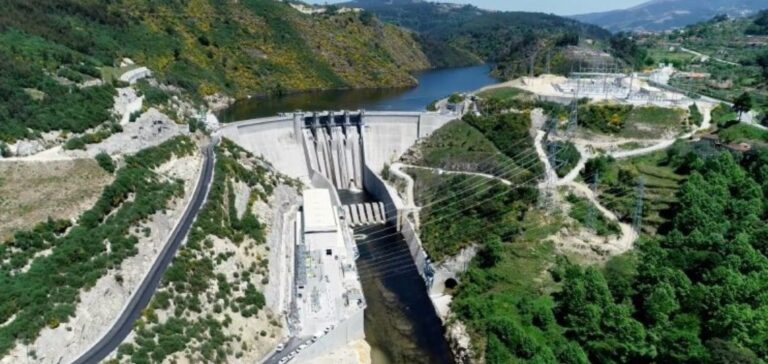By 2024, Portugal had established itself as a key player in the reduction of fossil fuels in Europe.
In just seven months, the country reduced its electricity production from natural gas by 60%, reaching a record level of 21.76 TWh of clean energy, according to Ember data.
This success is based on the boom in renewable infrastructures, with a notable increase in solar, wind and hydroelectric production.
New projects, such as the Tamega dam (1,158 MW) and the Cerca solar farm (202 MW), have reduced the share of fossil fuels in the national energy mix to 10%.
This progress has also led to a significant reduction in CO2 emissions, which now stand at an all-time low of 2.12 million tonnes for the first seven months of the year.
The drivers of energy transformation
Diversification of energy sources has been crucial for Portugal. Hydropower benefited from favorable weather conditions and optimized resource management, with a 67% increase in production from pumped storage facilities and 70% growth in river production compared with 2023.
As a result, hydropower’s share of the energy mix has risen to 35.3%, compared with 20.7% the previous year.
At the same time, solar and wind power consolidated their role in the country’s energy landscape.
Solar power accounted for 13.3% of electricity production, while wind power reached 33.1%, testifying to the steady progression of these sources in the energy mix.
Long-term prospects and strategies
The Portuguese government has set ambitious targets for 2030, aiming for 51% of final energy needs to be covered by renewable energies.
Among the flagship projects, the Alqueva floating solar farm stands out for its innovative approach, combining solar power, hydroelectricity and battery storage for an annual production of 7.5 GWh.
In addition, the extension of wind power capacity, notably with offshore projects, is currently being evaluated.
This momentum, underpinned by sound government policies and rigorous strategic planning, has put Portugal at the forefront of Europe’s energy transition.
The country’s performance in reducing fossil fuels and increasing renewable production offers a model for other European nations to follow, at a time when decarbonization is becoming a global priority.






















